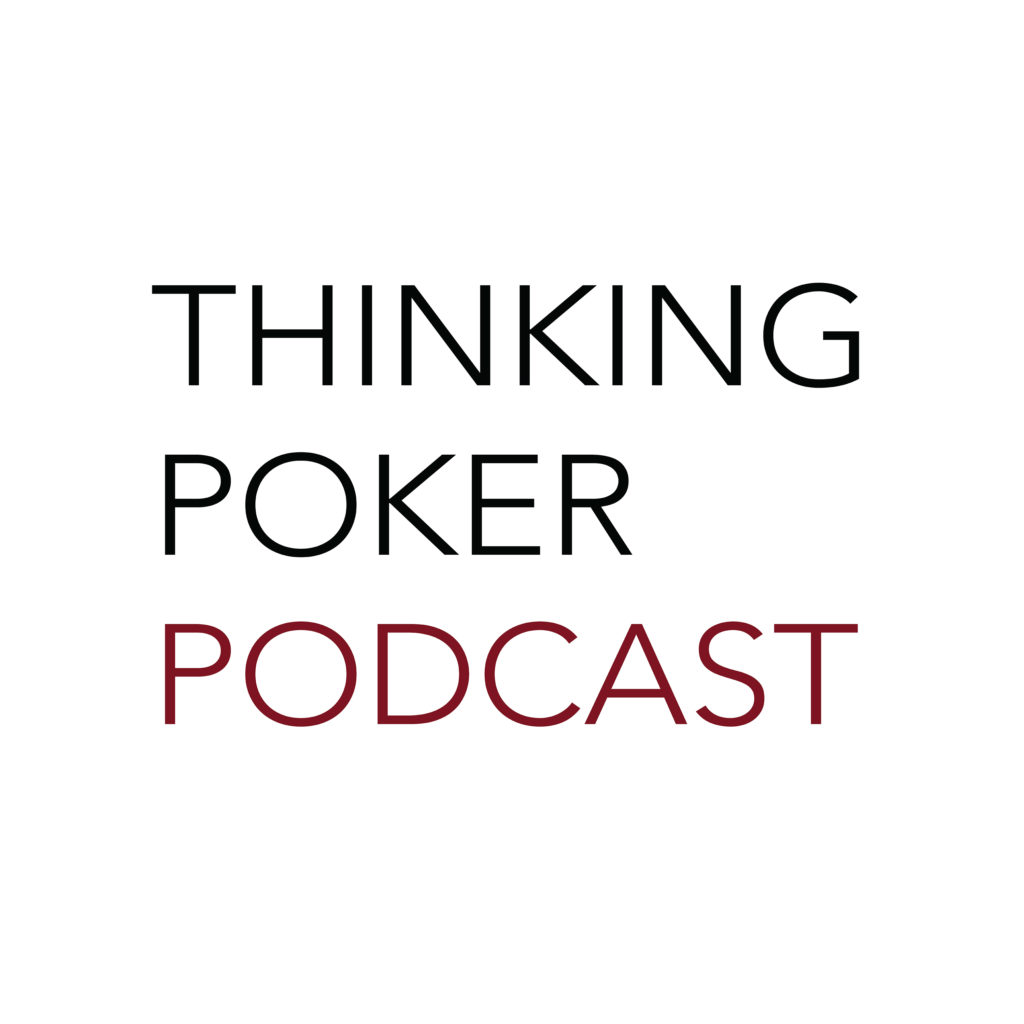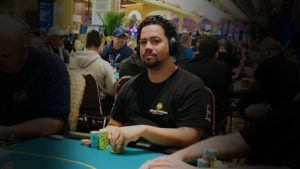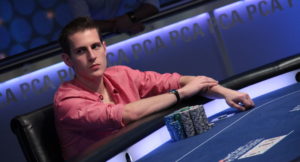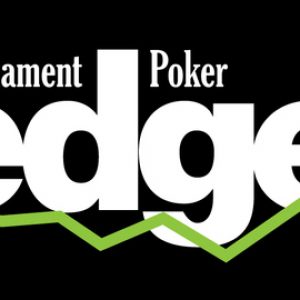I was glued to the recent Girah/Jungleman/DogisHead scandal(there are a few threads on the subject but this is the most recent). I read every interview and every statement from the “suspects” within minutes of its release. I’ll admit that I do enjoy a good scandal, but what was really fascinating about this one was what it revealed about this very strange world of sometimes socially stunted young people who have grown suddenly wealthy by excelling at a few very specific skills. There is no denying their intelligence, and yet they can be naive and downright dumb in so many ways.

It reminds me of some of the teenagers I’ve met through my work in urban public education. Many of these kids come from circumstances that force them to grow up early. For a variety of reasons, they may be responsible for not only themselves but younger siblings from a very young age. Many have seen violent crime and drug addiction up close, in a friend or family member if not personally.
Consequently, they can seem deceptively mature. One minute, you can be having a deep, serious conversation about religion or education and you feel like you are talking to an adult. Then suddenly your 15-year-old interlocutor will ask you a question like, “Is Bush a Democrat or a Republican?” or just interrupt himself mid-sentence to go run after a girl he’s interested in, and you remember that you are still dealing with a child.
That’s how I felt reading Haseeb’s “confessions” and Daniel’s interviews. These are individuals who have achieved incredible success at a very difficult game, who are dealing with staggering sums of money, and who are suspected of perpetrating some very complicated and serious fraud. It’s an adult situation, and while at one moment they seem to recognize the gravity of it all, in the next they are offering ridiculous, frivolous justifications for their behavior: ” It’s one of those things that happens and that everybody does and has been guilty of at one time or another” (Haseeb on the 25/50 heads up PLO session that he played on the Girah account) or “Maybe I should have confronted Haseeb, but coming out and saying something publicly is nothing but the most sanctimonious mother fuckers would ever do.” (Daniel on why he wouldn’t have said anything even if their chipdumping had resulted in Girah winning the Lock Poker challenge illegitimately).
Of course there’s the open question of to what extent anything that these guys say can be believed. The naivete is there either way, though. Either Haseeb and Daniel really did stake Jose for $100,000 without investigating his results, or they expect the poker community to believe they did. Either they really did think that chip-dumping was the best way to get the money into Jose’s account, or they expect us to believe that they had no idea the dump would give Jose the lead in the Lock challenge. In either case, the naivete is staggering.
Time and again, these scandals that rock our community seem to be caused at least in part by extremely immature individuals who take their ethical cues from a very small and specific peer group and are at best out of touch with the larger context of their actions. How many times have we heard that “everyone” was multi-accounting the Sunday Majors (Bonomo), “everyone” was buying accounts (Mizzi), “anyone” would take a UB sponsorship if money were thrown at them (Sebok et al) etc.?
It’s possible that these are just ex post facto justifications, but I’m often inclined to believe them simply because the perpetrators make so little effort to hide what they are doing. Josh Fields was busted for multi-accounting because one of his friends bragged about him winning a major tournament on an account that wasn’t his. Instructors used to produce videos all the time where they played on other people’s accounts, as though the fact that it made for better videos justified the harm done to their opponents. Dan Flowers produced instructional videos in which his HUD showed tens of thousands of hands’ worth of data on opponents with whom he’d played only a few hundred hands, clear evidence that he’d purchased datamined hand histories.
All of these players were probably aware that they were doing something a little shady, but the fact that they made so little effort to hide suggests that they honestly didn’t believe it was that big of a deal. In some sense, they were right. Of the players I mentioned in the last two paragraphs, Fields is the only who is still persona non grata in the poker community. A shocking number of players support accused cheats in the “no big deal” defense, and sponsors (who remember are often relatively immature suddenly-wealthy individuals themselves) are generally willing to overlook these things. Likewise, if they are good players and/or fun to hang out with (by the way, isn’t it shocking how many of these folks caught cheating were already making tons of money on the up and up?), other members of the community are surprisingly quick to forgive them as well.
There’s a pervasive sense in our community that skirting (to be generous) ethical lines is no big deal if “everyone else” (meaning your small circle of similarly situated and self-interested friends) is doing it, if it is convenient or profitable for you (for some really laughable ethical reasoning, check out this thread about US players playing over a VPN), or if the only victims are “fish” (Tommy Angelo is the only poker player I’ve ever heard condemn the practice of berating opponents simply because it’s a bad way to treat other human beings rather than because it’s bad for the game).
This self-centered mindset where the only ethical compasses are one’s own self-interest and the approval of one’s immediate, usually biased peers is fundamentally immature. Even more immature are the half-assed apologies and justifications and the general attitude that pristine ethical behavior can’t be expected from poker players.
Well, maybe it can’t be expected, but it ought to be demanded. We all probably ought to be more skeptical than we are about our competitors. We also ought to demand better behavior and have higher consequences when people fall short. It seems like even after a player acknowledges wrongdoing, he rarely makes any effort to rectify the problem. See Cates’ unwillingness to repay money he won when playing on the Girah account for a recent example.
Poker players aren’t saints, and I’m not saying that an ethical infraction ought to get you shunned for life. But I do think we ought to demand a little more, from others and from ourselves, before we let it all become water under the bridge. It’s the mature thing to do.















21 thoughts on “Immaturity”
I do agree with a lot of this, although with some caveats.
I remember, way back, being blown away when i discovered that dog-is-head was so young, given the sophistication of some of his videos. But in the occasional post of his i encountered on my odd foray into NVG on 2+2 more recently – the million dollar bet incident, and a casual awareness of the portugese poker prodigy scandal, for example – i was really struck at how the idea of being a professional gambler and an online poker player seemed to be shaping his self image, and driving decisions and attitudes which seemed pretty weird to me.
I also think that there’s a lot of dodgy reasoning about ‘what we do’ being ok and ‘what they do’ being unethical. For example drawing the lines between good and bad in the realm of ghosting/sweating/team playing, for example, is not really obvious to me. On the other hand, double standards and ethical inconsistencies are pretty much a human universal.
Finally, there are plenty of really sound young players and, whilst i am not knowledgeable about either world in real depth, i think on balance i would have more faith in the standards of the online community than i would the pre-boom live playing community (if you can even begin to split poker into the two).
hall of fame, huh ?? http://www.fuckonlinepoker.com/cheaters.html
Andrew –
Honestly, IMO this is how people behave in general (not just in poker) when there are no laws and no cops around to enforce them. This is yet another argument for strong regulation of poker in the U.S. People will continue to exceed speed limits when they know there are no cops around and other cars in the road are speeding too.
The threat of going to jail, will correct a lot of this.
Ganesh,
There are laws and cops at work here, just not any with formal titles. Social norms of behavior are laws and most folks, even poker players abide by them. The players themselves act as cops, as most major online and even live poker scandals have been identified not by authorities but by players themselves. If you look outside of poker, at any other industry, you will see government laws and cops are not able to stop misbehavior. In the U.S., Enron happened despite those activities already being illegal and under the watch of regulators. So did the mortgage scandals, and the investment banking scandals, and on and on and on.
I think Andrew’s point is that online poker has a unique problem in that so many of our best particpants are young and immature. These leads to many situations where participants lack the maturity or experience to understand the nuances of the ethical issues. Very smart, rational, focused poker players end up making dumb, illogical, and lazy excuses for their behavior, partly out of immaturity. Our desire to be taken seriously doesn’t hinge on whether or not we get regulation, it hinges on whether the majority will hold the minority accountable for their misdeeds.
Self-policing doesn’t work. Haven’t we learned anything from wall street? When you do not impose outside regulation, the social fabric of a small community that is supposed to police itself gets distorted because the people in it do not have proper perspective and are naturally self-interested and not paragons of altruistic virtue.
You say most major online poker scandals have been identified by players… there should be no need, and would be no need, with proper regulations. The only people who don’t want regulation are the shady people making money from cheating the “fish”.. and sometimes themselves.
Honestly, I am a fish. Check out some of the naive strategy questions I have posted on this blog over time. But I oppose regulation for the simple reason it has proven ineffective in so many other aspects of life. Although regulation may help the game grow, it won’t solve the problem of cheating or the problem Andrew has identified of immaturity.
I respect your opinion about regulation, but I suggest to you it runs counter to the facts of recorded history.
> But I oppose regulation for the simple reason it has proven ineffective in so many other
> aspects of life. Although regulation may help the game grow, it won’t solve the problem of
> cheating or the problem Andrew has identified of immaturity.
Ineffective is not the correct word. Regulation just means having a set of rules, which _should_ be obeyed on all sites, backed by the authority of the government.
This should solve a lot of “grey” problems, like what kind of software you can have helping you while you play or to what extent you are allowed to use any HH data etc. etc.
Obviously this can’t _stop_ things like “let me see your cards while I play against you”, but the clarification brought about by universal rules can certainly stop the people who do that kind of thing trying to hide their behaviour in the greyness of all the other rules.
And much like building codes, or lots of other forms of regulation … it won’t be perfect, but I’d much rather have it than not.
Very well said. I think you’re spot on that codifying a set of expectations is an important step and would deter at least some of the scuzziness we see now. I really believe that a non-trivial amount of the multi-accounting, etc. that has happened in the past was a matter of people genuinely convincing themselves they were doing nothing wrong.
Some regulation has worked and some hasn’t. To suggest that there are lessons of history that definitively say one way or another on the big tent that is “regulation,” is to be blunt, ideological.
As the other two posters imply, to think or say that history proves regulation doesn’t work is simply wrong. It may be difficult to do regulation properly – no question – but it is indisputable that NO regulation leads to corruption and anarchy. Virtually by definition.
For one recent example, might I suggest you look at the Canadian Banking Sector while the US was melting down in 2008 and 2009. Guess why Canadian Banks had barely a hiccup while in the US the house of cards was falling down left and right? …. yes, regulation and oversight.
What lack of regulation does is let a few intelligent and unscrupulous speculators make obscene fortunes, which is what has happened in poker.
At first I was going to disagree that the ones making fortunes were all unscrupulous, and indeed I do think most of the most successful players have proven upstanding, but of course the ones who really got rich were the owners of the sites, and their track record is not so good…
At the very least having a mechanism for suing and/or prosecuting both operators and other players would be a deterrent to cheating.
“It may seem strange to some man that has not well weighed these things that Nature should thus dissociate and render men apt to invade and destroy one another: and he may therefore, not trusting to this inference, made from the passions, desire perhaps to have the same confirmed by experience. Let him therefore consider with himself: when taking a journey, he arms himself and seeks to go well accompanied; when going to sleep, he locks his doors; when even in his house he locks his chests; and this when he knows there be laws and public officers, armed, to revenge all injuries shall be done him; what opinion he has of his fellow subjects, when he rides armed; of his fellow citizens, when he locks his doors; and of his children, and servants, when he locks his chests. Does he not there as much accuse mankind by his actions as I do by my words? But neither of us accuse man’s nature in it. The desires, and other passions of man, are in themselves no sin. No more are the actions that proceed from those passions till they know a law that forbids them; which till laws be made they cannot know, nor can any law be made till they have agreed upon the person that shall make it.” Hobbes, Leviathan
Precisely! Make the laws already and stop being surprised and outraged that these things are happening. We have agreed upon the person.
Good article. I agree with pretty much everything you said – although the Cates / Tyler Smith situation I think is slightly different than your typical cheating scandal.
While I think its bad form, and just an overall douchey/shady move to MA against someone who actually wouldn’t play you on your normal account – since Smith had no knowledge of who Girah was – and Jungle/Smith played on a network that allows multiple usernames – he can’t automatically assume the person he’s playing isnt jungleman. Had he had previous history w/ Girah / knew who he was – then I completely agree that jungleman is 100% at fault here – but given he was effectively an unknown to smith – I don’t think he’s entitled to a refund.
Also in case you missed it – maybe SrslySrius’ best work: http://www.youtube.com/watch?v=_rV6pbfA1DM
Thanks, I didn’t miss it but I did intend to link it in the original post! I don’t think I agree about Tyler. Cates wasn’t just playing under an anonymous name, he was playing under the account of a high-profile sponsored pro. So he wasn’t a blank slate but someone Tyler could have inferred quite a bit of (inapplicable) information about, including the important fact that he was not Jungleman or a number of other players Tyler would choose not to play. Tyler claims he googled the name. Of course he could be lying, but setting himself up for an angle-shot is the price Cates pays for playing on someone else’s account. IMO he should return 100% of the losses- getting freerolled is also the price he pays.
I hate to break it to you all, but poker is a shady game and by definition produces shady characters. It’s just magnified with these shady AND immature young kids.
You cannot escape the reality that when you play a zero sum game with lax oversight and huge potential payoffs, the scum will rise to the top.
One curious thing though is that normal people actually took this Girah thing seriously. I mean, I read his first post on 2+2 proclaiming himself the Portugese Poker Prodigy, and my first thought was that it was fake – for laughs, to troll 2+2, whatever. Then I read the threads that followed, and though it was either a hoax or a scam. And THEN I realized people were taking it seriously? I mean can’t you read? The whole thing was ludicrous… it may be possible to have prodigies in poker, but not without any evidence. And there was ZERO evidence.
I don’t see why it’s intrinsically a shady game that produces shady characters, though I think I agree with the rest of your comment.
Poker is not that different from professional sports in that way. Just because LeBron James is really good at basketball at 25 and, until then, hadn’t done anythign really stupid doesn’t mean he shares maturity or enlightened moral thinking when it comes to The Decision. People do this all of the time: You see someone who has a trait that you respect/covet so you project onto that person other traits that you would like to go along with the first trait (especially in the absence of evidence contra, though not always — see, e.g., women of a certain age thinking Keanu Reeves is a good actor). Not that “scum is attracted to poker,” but early success in poker (like most sports) is not at all contingent on a person convincing others that he is mature or moral.
On further reflection, I have seen the error of my “idealogical” ways.
If we think about other aspects of poker where regulation has solved a problem, we can see how it might work in this case. For example, poker winnings are taxable and the tax regulations have proven quite effective at getting young internet pros to fully report their winnings and pay their taxes. I am sure a federal law agains multi-accounting and ghosting, etc. would be just as effective.
I’ll remove the tongue from my cheek to clarity my original post. My original claim was that the game is regulated now. It is regulated, quite capably, by the many honest players in the game. I have very low expectations that federal regulation would improve on the current framework. Andrew has properly identified a unique problem of poker: young, immature superstars who get themselves into trouble without realizing the gravity of their actions. Some reaqders will turn to the government to solve this problem. However, I think the likes of Andrew Brokos (successful, young, yet mature players) can better solve this issue by putting pressure on the immature players to do the right thing. The online communty, via outlets such as 2+2 and Andrew’s blog, will do more to stop these activities than any federal law ever could.
Pointing to individual instances where regulation has not worked isn’t a cogent argument. The solution you describe – censure from the online community – is the status quo, and clearly it isn’t preventing all malfeasance either.
It’s not even clear to me what you mean by “regulation”. I don’t think I’d endorse government telling sites what games they can spread, how much to rake, setting deposit limits, etc. is desirable, but I do think there’s a need for laws penalizing cheating (by players but especially by sites), for courts that can enforce contracts, and for enforceable standards regarding how a site is run (to prevent undercapitalization like what happened with FTP). Notice that the publicly traded companies (Party, 888) have not had nearly the problems that companies with opaque ownership like FTP and UB/AP have had. I also think that laws can help to codify and make clear the social norms that you’re talking about, and that once those norms exist the online community plays an important role in upholding them. In other words, social enforcement plays an important role in the process, but it can’t do the job on its own.
Comments are closed.